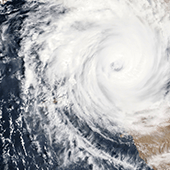
Virtual desktops
In most offices, employees are still dependent on desktop computers. Their workstations grant them access to everything from customer relationship software to company databases and when these computers go down, there’s no way to get work done. Virtualized desktops allow users to access their files and even computing power from across the internet.
Instead of logging on to an operating system stored on a hard drive just a few inches away from their keyboard, employees can take advantage of server hardware to store their files across a network. With barebones computers, employees can log in to these virtual desktops either in the office or from home. Floods, fires and other disasters won’t prevent your team from working because they can continue remotely.
Virtual applications
Devoting a portion of your server’s hardware and software resources to virtual desktops requires a fair amount of computing power. If the majority of your employees’ time is spent working with just one or two pieces of software, you can virtualize just those applications.
If a hurricane destroyed your office and the hardware inside it, virtualized applications can be restored in minutes. They don’t need to be installed on the machines that use them, and as long as you have backups these applications can be streamed to employee computers just like a cloud-based application.
Virtual servers
If you use virtual desktops or applications, it makes perfect sense to use virtual servers as well. With a little help from a managed services provider, your servers can be configured to automatically create virtual backups. Beyond preventing data loss, these backups also make it possible to restore server functionality with off site restorations.
Virtualized servers are incredibly useful when clients need access to a website or database that you maintain in the office. For example, if you provide background checks on tenants to rental property owners through your website, an unexpected power outage won’t cause an interruption of service. Your virtualization solution will boot up a backup server away from the power outage and your customers will be none the wiser.
The benefits of virtualization extend far beyond disaster recovery planning. Your business can also reduce IT costs and increase hardware capacity — all it takes is some help from trained experts. Call us today to learn more about what we can do for you.

